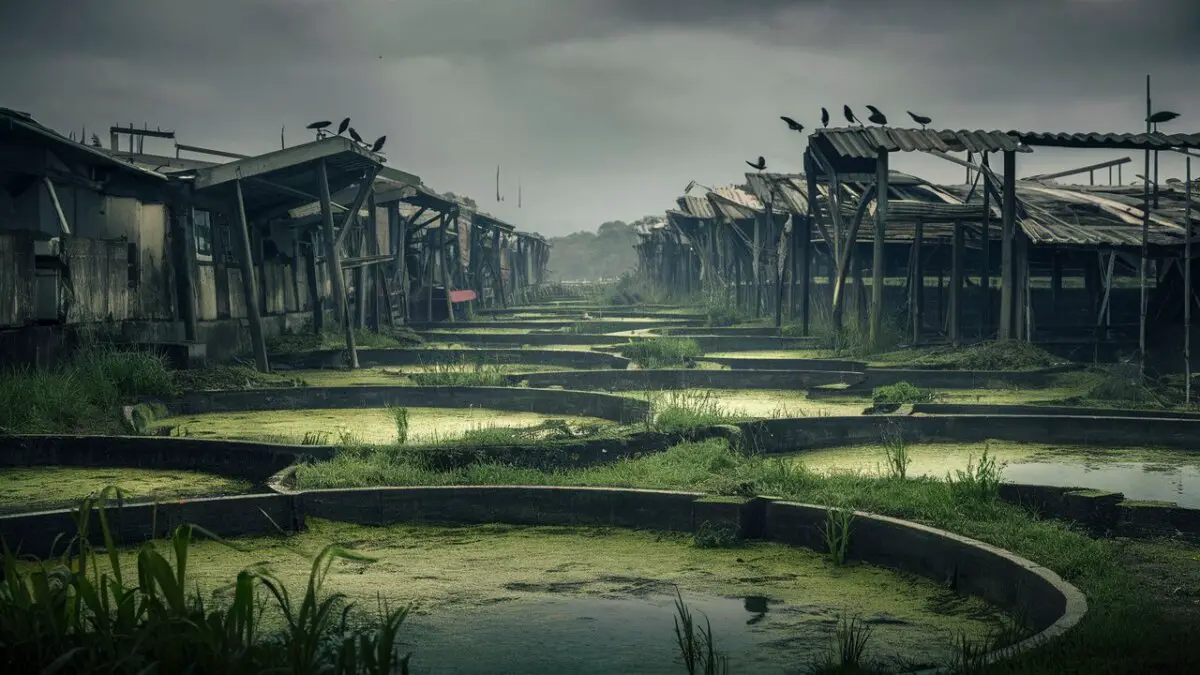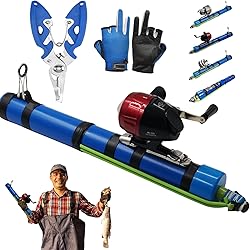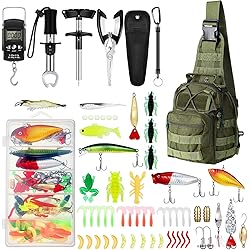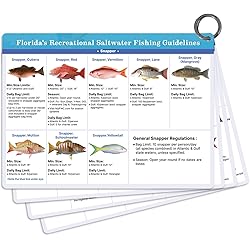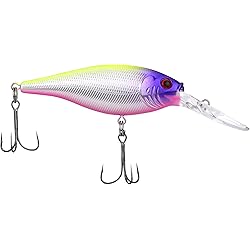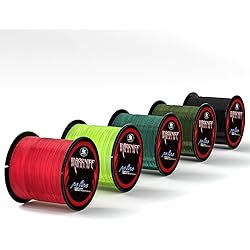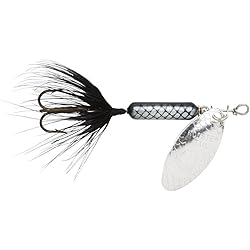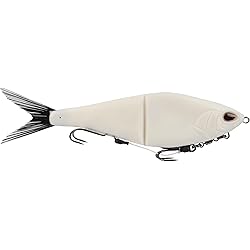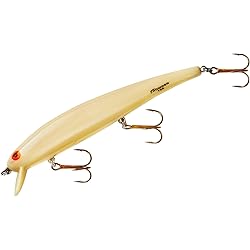Looking at the Challenges Causing Fish Farms Failed in Nigeria. Nigeria’s fish farming sector has faced major obstacles that have hampered its expansion in recent years.
The main issue is the poor infrastructure, which makes it difficult to manage water resources effectively and has an adverse effect on fish health.
Inadequate regulatory oversight exacerbates the problem even more, resulting in unsustainable activities and environmental deterioration.
The Aquaponic Farmer: A Complete Guide to Building and Operating a Commercial Aquaponic System
Furthermore, the industry is struggling with growing operating expenses, which makes it challenging for farmers to stay profitable.
Lack of access to high-quality feed and cutting-edge technologies hinders productivity, and climatic instability poses an unexpected risk.
In order to guarantee long-term viability and revive Nigeria’s fish farming industry, it is essential to address these important concerns.
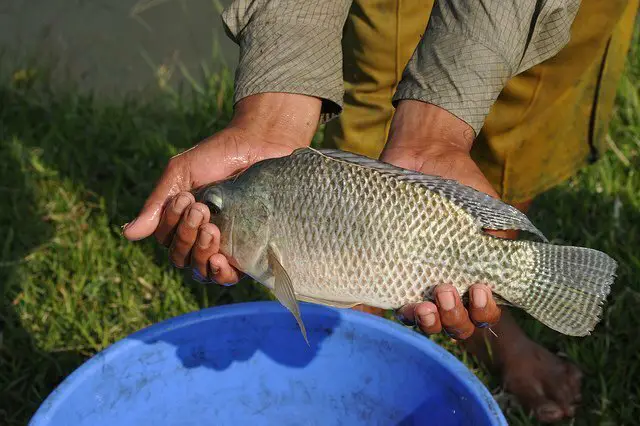
Introduction
Once praised as a source of economic promise in Nigeria, fish farming is currently confronting unheard-of difficulties that might endanger its long-term viability.
This article explores the several causes of the nation’s fish farming problems, from economic hardships to environmental concerns.
Pollution and climate change have disrupted the delicate equilibrium that fish development depends on.
Economic challenges like rising feed costs and a lack of government support plague the sector.
The proliferation of unsustainable practices has further undermined the sector’s resilience due to the lack of adequate regulatory frameworks.
Fish farmers thus struggle with lower harvests and unstable finances. Potential answers include more funding for sustainable practices and technological advancements in aquaculture.
To maintain the industry’s once-dominant status as an economic beacon, Nigerian fish farming must adopt a holistic strategy that addresses environmental protection, economic stability, and regulatory frameworks.
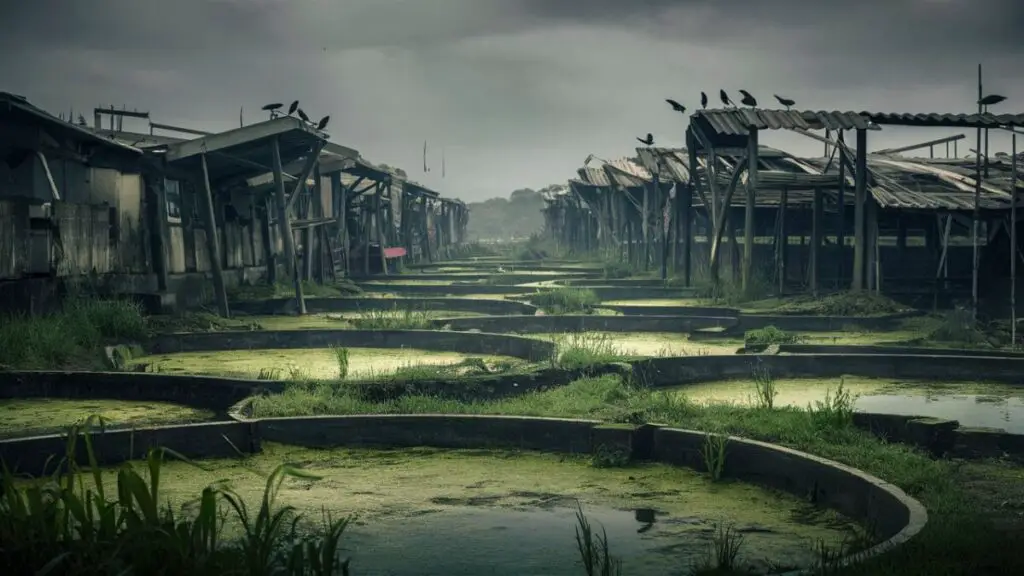
Fish farming’s Potential and Promise
In the beginning, Nigeria had great potential for fish aquaculture. People viewed it as a profitable endeavor that could strengthen regional economies and provide a steady supply of food.
The early enthusiasm for fish farming drove investments and programs meant to encourage its expansion. However, after that, the sector encountered several challenges that hindered it from realizing its full potential.
Problems like insufficient supply chains, poor water quality control, and inadequate infrastructure severely hindered the industry’s development.
Notwithstanding these failures, there is a renewed emphasis on using cutting-edge technologies and government initiatives to solve these issues.
The Aquaponic Farmer: A Complete Guide to Building and Operating a Commercial Aquaponic System
In order to improve the sustainability and effectiveness of fish farming operations, strategic alliances with private businesses and research institutes are becoming more prevalent.
Concurrently, increased awareness of the importance of conscientious aquaculture is promoting a positive shift in public opinion.
As it works through these challenges, Nigeria has the chance to revive fish aquaculture and make it a strong pillar, promoting both economic growth and food security.
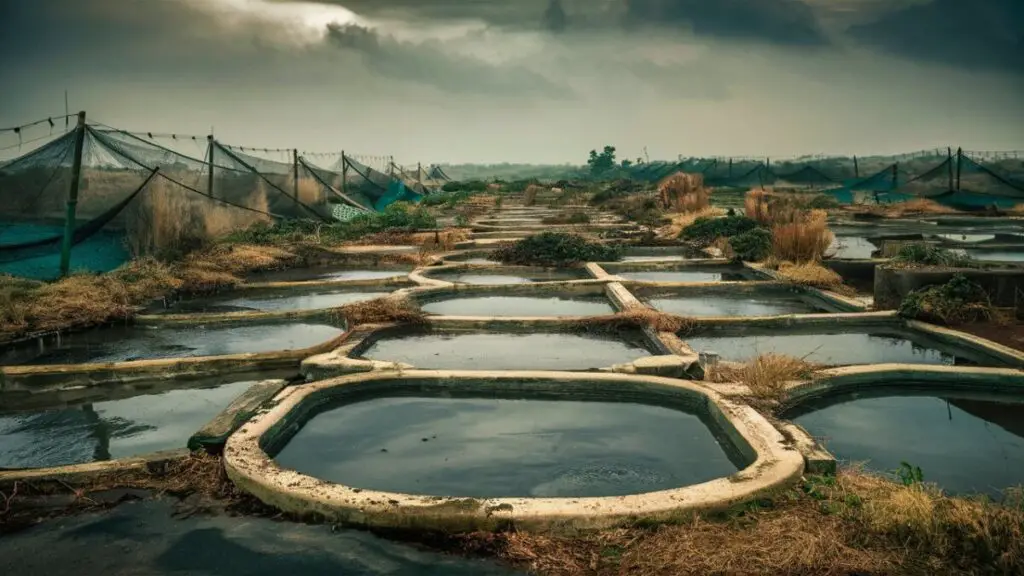
Environmental Difficulties in Fishing
It is essential to find sustainable solutions to the many problems Nigerian fish aquaculture faces.
It is imperative to apply cutting-edge aquaculture methods that improve climate change resistance.
The use of climate-smart strategies, including integrated multi-trophic aquaculture, might lessen the negative consequences of unpredictable weather and temperature swings.
We must install modern monitoring devices to regularly assess the water quality, ensuring a fish-growing environment.
In addition, community involvement is essential for encouraging a group effort to adjust to these changes.
Fostering educational programs on aquaculture practices that are resilient to climate change would enable fish producers to acquire the skills necessary to adapt to changing environmental circumstances.
The government must provide financial incentives to encourage the adoption of sustainable practices and build infrastructure that protects aquaculture from climate-related disruptions.
All in all, a comprehensive strategy that incorporates government backing, community engagement, and technology improvements is essential to strengthening the Nigerian fish farming industry against the threats posed by climate change.
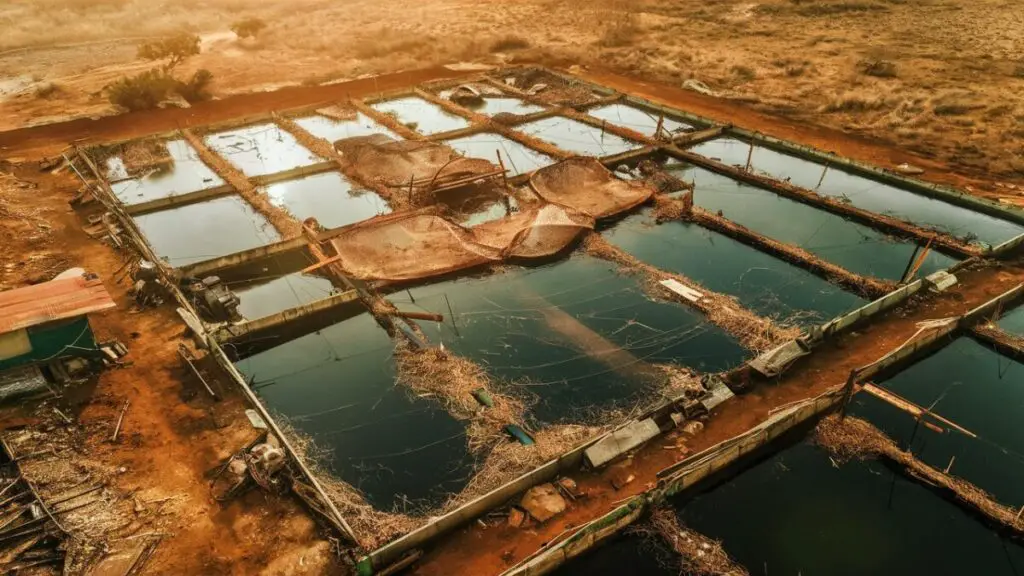
Problems with Pond Infrastructure
Fish producers face subpar conditions that reduce output due to old equipment and poor connectivity.
Antiquated fishing gear and inadequate storage facilities exacerbate their post-harvest losses, making their attempts less financially viable.
The absence of real-time monitoring systems exacerbates challenges, making it challenging for farmers to respond swiftly to disease outbreaks and changing environmental conditions.
Limited access to modern agricultural techniques and aquaculture research, which perpetuates outdated practices, exacerbates the problem.
The absence of channels for knowledge exchange obstructs the advancement of fish farming techniques, impeding their conformity to global sustainability norms.
Aquaponics for Beginners: How to Build your own Aquaponic Garden that will Grow Organic Vegetables
Moreover, the digital divide in rural areas exacerbates these challenges, leaving many farmers isolated from technological advancements that could enhance efficiency.
In addressing these concerns, concerted efforts are needed to bridge the technological gap, providing fish farmers with the tools and knowledge required for a more sustainable and prosperous industry.
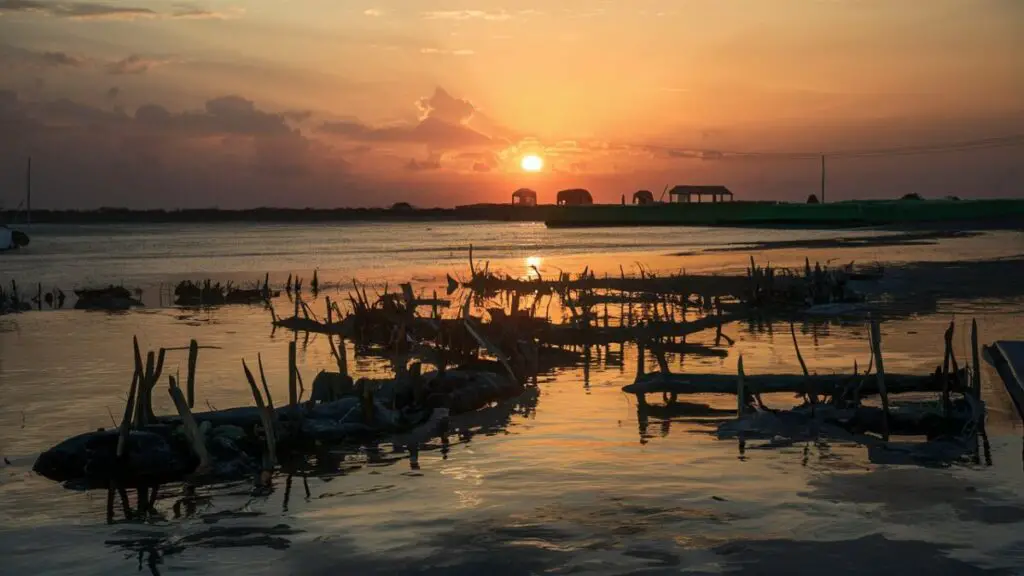
Outbreaks of Pond Disease
We must implement robust biosecurity protocols to mitigate the impact of recurrent disease outbreaks on fish farms.
To protect aquatic ecosystems from pathogenic threats, proactive measures, including routine health checks, stringent quarantine procedures, and maintaining ideal water quality, are essential.
Moreover, the integration of sophisticated technology, such as genetic resistance breeding and computerized monitoring systems, can greatly improve fish populations’ ability to withstand illness.
Programs for farmer education and awareness are essential to developing an aquaculture culture that adheres to ethical standards.
Establishing thorough disease monitoring networks and exchanging vital information requires cooperation amongst stakeholders, including governmental agencies, academic institutions, and the aquaculture sector.
The development of vaccinations for specific fish infections has the potential to strengthen the industry’s resistance.
To put it simply, a multimodal strategy that incorporates community involvement, regulatory backing, and scientific developments is critical to guaranteeing fish farming’s sustainable future in the face of the growing threat posed by disease outbreaks.
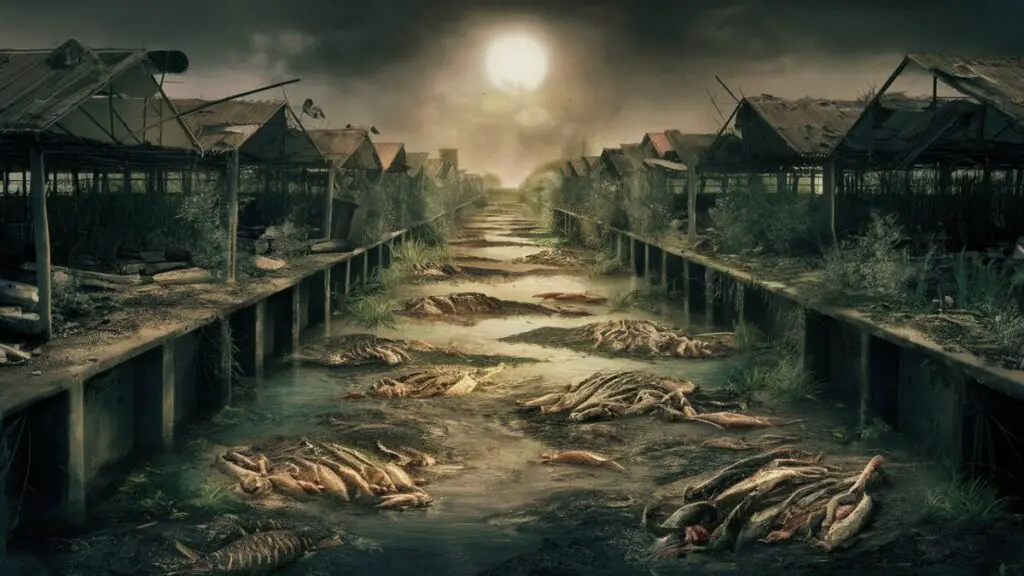
Pond Financial Difficulties
The economy is a key factor in fish farming’s success, which is a dynamic environment driven by supply and demand dynamics, governmental regulations, and worldwide market trends.
Market swings and uncertain demand can significantly impact the profitability of fish farms, underscoring the importance of strategic financial management.
Farmers may have financial difficulties due to fluctuations in the economy; therefore, they must have strong plans in place to overcome these difficulties.
Fish farmers must use adaptive strategies to navigate the complex dance of market forces in order to not only survive but also prosper in a constantly shifting economic landscape.
The ability of the fish farming sector to recognize and act upon market signals in a timely manner is critical to its success.
Aquaponics for Beginners: How to Build your own Aquaponic Garden that will Grow Organic Vegetables
Looking at the Challenges Causing Fish Farms Failed in Nigeria
Recognizing the symbiotic relationship between economic conditions and aquaculture operations, proactive initiatives such as diversification, technological integration, and sustainable practices become crucial.
In essence, a harmonious balance between the aquaculture sector and the economic landscape is the bedrock for ensuring the continued vitality and prosperity of fish farming on a global scale.
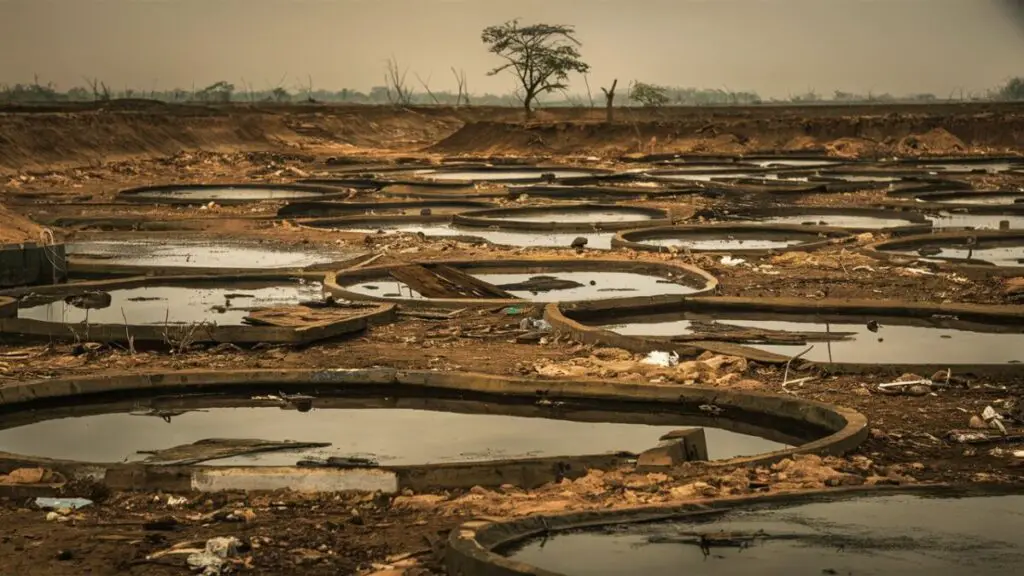
Pond Regulatory Obstacles
Government rules are essential for maintaining the integrity of fish farming, encouraging ethical behavior, and guaranteeing the sustainability of the ecosystem.
But sometimes these rules unintentionally make it harder for farms to achieve operational and compliance requirements.
Achieving a careful balance between upholding essential regulations and offering the assistance required for the industry’s success.
The trick is to create rules that solve environmental issues without impeding fish farming’s capacity to innovate and remain profitable.
In order to ensure the industry’s survival while protecting natural resources, sustainable development must continue to be at the forefront of regulatory objectives.
In return, farmers have access to technology that supports their financial interests and regulatory requirements, as well as expedited processes and tailored financial incentives.
Encouraging cooperation between governmental organizations, farmers, and environmental specialists can achieve a peaceful balance, ensuring the continued existence of fish farming as a sustainable and profitable industry.
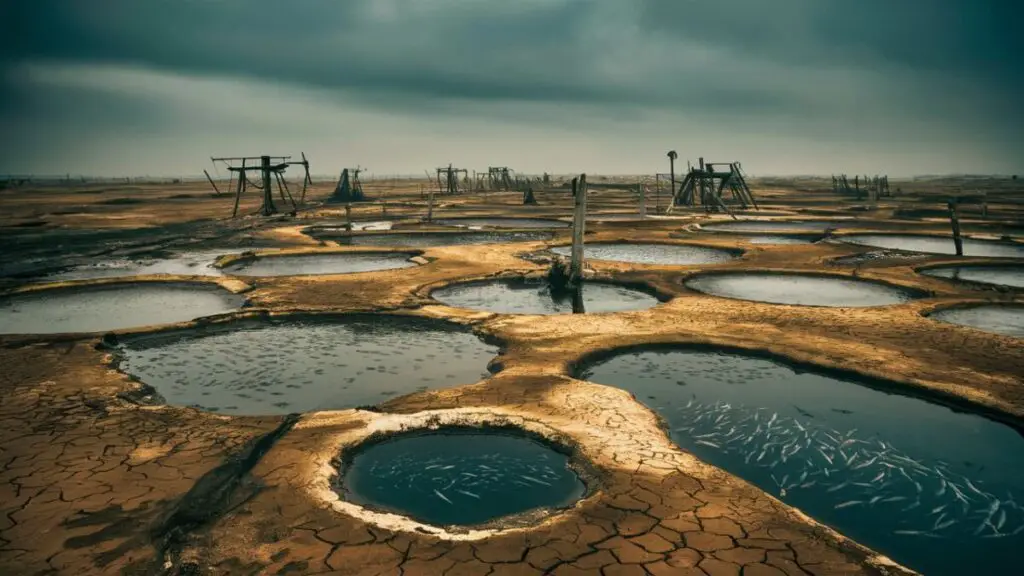
Lack of Awareness
Sustainable fish farming methods are essential for the industry’s survival, but a widespread lack of knowledge in the surrounding communities exacerbates the current situation.
This lack of understanding adds to the sector’s ongoing problems, which include environmental deterioration and overfishing issues.
To solve this pressing problem, it is essential to start focused campaigns that inform and increase awareness about the need for responsible aquaculture.
Programs for community participation may be vital in spreading knowledge and giving locals the resources they need to comprehend how their activities affect aquatic ecosystems.
FRESHWATERS FISH FARMING FOR BEGINNERS
These programs establish a conducive environment for the flourishing of sustainable practices by promoting accountability and caregiving.
Moreover, the effectiveness of these awareness programs depends on cooperation between local stakeholders, NGOs, and governmental entities.
The key to the success of sustainable fish farming is ultimately a knowledgeable public, which ensures the wellbeing of the sector as well as the ecosystems it depends on.
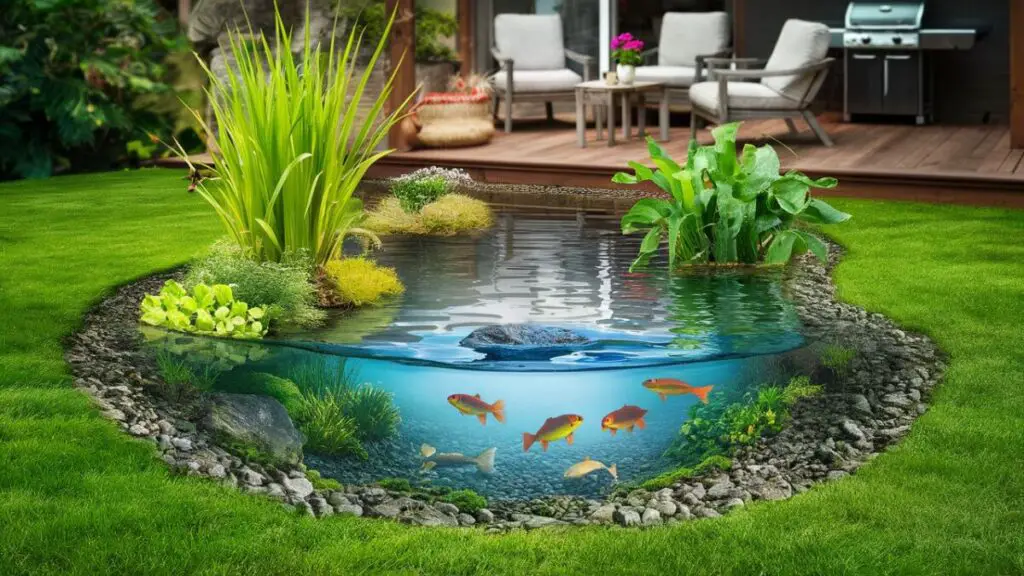
New Developments in Fish Farming
Aquaculture strategies that prioritize sustainability have become a source of hope for the fish farming industry.
By utilizing cutting-edge technology like IoT and AI, smart aquaculture systems are changing the environment.
These devices enable precise monitoring of environmental conditions, ensuring optimal conditions for fish health.
Automated feeding procedures boost productivity by cutting waste and maximizing nutritional value.
The inclusion of sustainable energy sources, such as solar and wind power, addresses concerns about the ecological consequences of conventional energy usage in aquaculture.
Furthermore, recirculating aquaculture systems (RAS) represent a major advancement in the direction of sustainability.
These closed-loop systems lessen the chance of disease transmission and significantly cut down on water use.
Selective breeding methods are improving fish genetic features by encouraging resilience and faster growth.
Because of this, the fish farming sector is going through a significant transition that represents the possibility of a future that is more robust and sustainable.
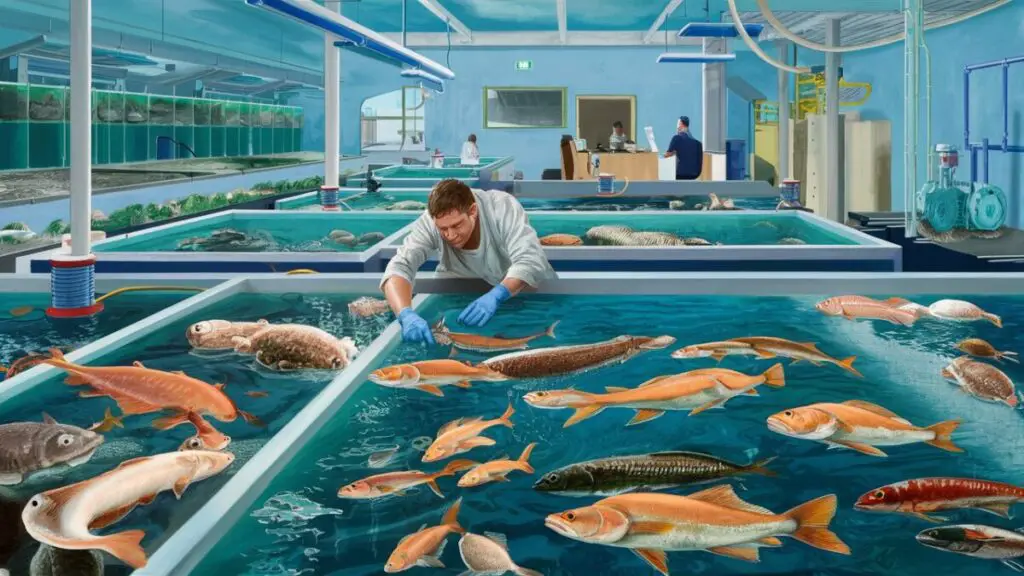
Pond Success Stories
Sustainability is the foundation for these thriving fish farms in Nigeria.
These successful endeavors prioritize sustainable methods in the face of adversity, protecting both aquatic ecosystems and their operations in the long run.
Innovation has largely contributed to their success, as evidenced by the fact that many have adopted cutting-edge technology for efficient aquaculture management.
Because these farms actively include local communities, they generate a sense of ownership and support, which makes community participation crucial.
Another important component is the adoption of diversity, with some farms including different fish species and investigating alternate sources of income like aquaponics.
FRESHWATERS FISH FARMING FOR BEGINNERS
Successful farms have demonstrated the value of government engagement by collaborating closely with regulatory organizations to maintain compliance and make the most of available resources.
Education programs provide farmers with even more access to the information they need to adopt sustainable farming methods.
These success stories demonstrate how Nigeria’s fish farming sector navigates challenges through sustainability, creativity, community, diversification, government cooperation, and education.

Collaborative Solutions in Pond
Combining public and private sector efforts and encouraging community involvement leads to a comprehensive strategy that is essential for coming up with all-encompassing solutions.
Strategic partnerships facilitate the integration of varied proficiencies and assets, augmenting the effectiveness of programs designed to assist fish farmers.
To sustainable rules and regulatory frameworks by the government is essential to creating an environment that supports the expansion of the aquaculture industry.
Simultaneously, the private sector’s innovative technologies and investment capacities facilitate the industry’s modernization and enhanced productivity.
Involving the local community is also essential, as they have firsthand knowledge of the ecosystems and customs surrounding traditional fishing methods.
Empowering communities through inclusive decision-making procedures and educational initiatives ensures sustainable and culturally responsive solutions.
The aquaculture industry can be resilient and successful by working together to address the many issues faced by fish farmers, with each sector contributing in a unique way.

The Future of Fish Farming in Nigeria
Although the situation is dire right now, fish farming in Nigeria has a bright future ahead of it.
By implementing innovations, adopting cutting-edge technical breakthroughs, and cultivating a supportive ecology, one can achieve a robust and prosperous industry.
Innovative strategies and sustainable aquaculture techniques are essential for tackling issues like disease control and water quality management.
Together, precision farming and intelligent aquaculture technologies may maximize resource use and improve output effectiveness.
Moreover, the creation of strong regulatory frameworks and knowledge-sharing platforms can result from strategic partnerships between the public and commercial sectors, as well as research institutes.
To promote the adoption of best practices and empower local communities, investments in skilled worker training are crucial.
By utilizing these SLI buzzwords, Nigeria can transform its fish farming business into a model of environmental stewardship and economic sustainability, providing a bright future for the sector as well as the country.

Conclusion
In conclusion, Nigerian fish farming has numerous and serious difficulties.
Nonetheless, there is a tremendous deal of opportunity for the business to overcome these obstacles and prosper with strategic planning, coordinated efforts, innovation, and sustainable practices.
Implementing technology-driven solutions, such as effective aquaculture management systems, can optimize production processes and address the issue of limited resources.
Collaboration between government agencies, local communities, and private businesses can ensure a comprehensive approach to problem-solving and foster a sense of shared responsibility.
Additionally, by implementing educational initiatives on ethical and ecologically friendly fish farming methods, we can empower communities and farmers, fostering a more aware and conscientious industry.
By adopting these audacious tactics, the Nigerian fish farming industry may overcome its obstacles and become a leader in sustainable aquaculture, fostering both economic expansion and food security.
FAQs
What are the main environmental challenges affecting fish farming in Nigeria?
Answer: Climate change and water quality concerns pose significant challenges to fish farming in Nigeria.
How do disease outbreaks impact fish farms?
Answer: Disease outbreaks result in financial losses and disrupt the supply of fish to local markets.
What role do government regulations play in the fish farming industry?
Answer: Government regulations are essential for ensuring responsible practices but can create hurdles for farmers if not balanced appropriately.
What innovations are promising for the future of fish farming?
Answer: Modern techniques and technology adoption offer hope for a more sustainable and resilient fish farming industry.
How can local communities contribute to the success of fish farming?
Answer: Raising awareness and actively participating in sustainable practices can significantly contribute to the success of fish farming in local communities.
Hooked on Tech: Exploring the latest Fishing Gadgets that Anglers swear by.
In the realm of angling, where tradition and technology often converge, a new wave of fishing gadgets has emerged, transforming the way anglers approach their craft.
From advanced fish finders to smart bait systems, these innovations have not only revolutionized the fishing experience but have also garnered a loyal following among anglers worldwide.
Zitehya Fish Hook Remover Tool, 4 Pack Fishing Hook Quick Removal Devices with Storage Tube, Security Hook Extractor Equipment, Fishing Gear Dehooker Tools for Adult
$4.59 (as of November 18, 2025 22:28 GMT +00:00 – More infoProduct prices and availability are accurate as of the date/time indicated and are subject to change. Any price and availability information displayed on [relevant Amazon Site(s), as applicable] at the time of purchase will apply to the purchase of this product.)Booms Fishing Line Cutter with Retractor: Mini Fishing Scissors for Braided Momo Fluoro Line – Braid Scissors Saltwater with Hook Eye Cleaner – Serrated Shears with Locking Feature, FR1
$9.99 (as of November 18, 2025 22:28 GMT +00:00 – More infoProduct prices and availability are accurate as of the date/time indicated and are subject to change. Any price and availability information displayed on [relevant Amazon Site(s), as applicable] at the time of purchase will apply to the purchase of this product.)Fishing Catapult Rod, Portable Catapult Fishing Rod with Slingshot Fishings Reel – Long-Distance Lures Launcher Fishings Tool for Beginners & Pros, Slingshots for Fish from Shore or Pier
$36.99 (as of November 18, 2025 22:28 GMT +00:00 – More infoProduct prices and availability are accurate as of the date/time indicated and are subject to change. Any price and availability information displayed on [relevant Amazon Site(s), as applicable] at the time of purchase will apply to the purchase of this product.)Sosation 134 Pcs Fishing Tool Kit Fishing Gear and Equipment for Men Adults, Include Hook Remover, Pliers Kit, Tackle Box with Tackle Included, Lures, Lip Gripper, Weigh Scale
$27.54 (as of November 18, 2025 02:23 GMT +00:00 – More infoProduct prices and availability are accurate as of the date/time indicated and are subject to change. Any price and availability information displayed on [relevant Amazon Site(s), as applicable] at the time of purchase will apply to the purchase of this product.)YuanDe 2 Pack Fish Net Decorations for Party
$15.99 (as of November 18, 2025 22:28 GMT +00:00 – More infoProduct prices and availability are accurate as of the date/time indicated and are subject to change. Any price and availability information displayed on [relevant Amazon Site(s), as applicable] at the time of purchase will apply to the purchase of this product.)Goture Fishing Tool Kit, Fishing Pliers, Fillet Knife with Sheath, Fish Lip Gripper, Fish Hook Remover, Lanyard, Line Scissors, Sharpener, Stainless Steel Soap, Saltwater Gear Kit, Gifts for Men
$35.99 (as of November 18, 2025 16:24 GMT +00:00 – More infoProduct prices and availability are accurate as of the date/time indicated and are subject to change. Any price and availability information displayed on [relevant Amazon Site(s), as applicable] at the time of purchase will apply to the purchase of this product.)mouhike Fishing Pliers Fish Lip Gripper Fishing Tool Kit Muti-Function Saltwater Fishing Line Cutter Hook Remover with Sheath Lanyard, Fly Ice Fishing Gear Fishing Gifts for Men Women
$16.99 (as of November 18, 2025 10:29 GMT +00:00 – More infoProduct prices and availability are accurate as of the date/time indicated and are subject to change. Any price and availability information displayed on [relevant Amazon Site(s), as applicable] at the time of purchase will apply to the purchase of this product.)2025 New Slide-in Fishing Rod Hip Holsters – Hands-Free Belt Holder for Fly, Kayak & Bank Fishing – Carbon-Fiber Style, Ambidextrous Quick Draw, Scratch-Resistant Film, Fits 35mm Rod Handles
$19.99 (as of November 18, 2025 22:28 GMT +00:00 – More infoProduct prices and availability are accurate as of the date/time indicated and are subject to change. Any price and availability information displayed on [relevant Amazon Site(s), as applicable] at the time of purchase will apply to the purchase of this product.)OCQOTAT Florida Saltwater Fish& Shark Identification Set–4 Double-Sided Waterproof Quick-Reference Fishing Guide Cards with FWC Rules,Size Limits&80+ Fish&Sharks in Real Photos| Ring Binding,8.2x6inch
$9.99 (as of November 18, 2025 22:28 GMT +00:00 – More infoProduct prices and availability are accurate as of the date/time indicated and are subject to change. Any price and availability information displayed on [relevant Amazon Site(s), as applicable] at the time of purchase will apply to the purchase of this product.)Berkley Flicker Shad Fishing Lure, Black Silver, 1/2 oz, 3 1/2in | 9cm Crankbaits, Size, Profile and Dive Depth Imitates Real Shad, Equipped with Fusion19 Hook
$8.99 (as of November 18, 2025 04:59 GMT +00:00 – More infoProduct prices and availability are accurate as of the date/time indicated and are subject to change. Any price and availability information displayed on [relevant Amazon Site(s), as applicable] at the time of purchase will apply to the purchase of this product.)Clear Fishing Wire,755FT Monofilament Fishing Line,Clear String for Hanging,Strong Wire Invisible Nylon Thread for Hanging Balloon,Garland,Picture,Crafts,Decorations,Suitable for Beading Sewing
$4.59 (as of November 18, 2025 04:58 GMT +00:00 – More infoProduct prices and availability are accurate as of the date/time indicated and are subject to change. Any price and availability information displayed on [relevant Amazon Site(s), as applicable] at the time of purchase will apply to the purchase of this product.)Sun Hats for Men Women Bucket Hat UPF 50+ Boonie Hat Foldable UV Protection Hiking Beach Fishing Summer Safari
$9.99 (as of November 18, 2025 04:58 GMT +00:00 – More infoProduct prices and availability are accurate as of the date/time indicated and are subject to change. Any price and availability information displayed on [relevant Amazon Site(s), as applicable] at the time of purchase will apply to the purchase of this product.)Dr.meter Fish Scale Luggage Scale Fishing Gear – 110lb Backlit LCD Display Digital Scale with Built-in Measuring Tape – Fishing Scale with 2 AAA Batteries, Pocket Size – Fishing Gifts for Men
$8.99 (as of November 18, 2025 04:58 GMT +00:00 – More infoProduct prices and availability are accurate as of the date/time indicated and are subject to change. Any price and availability information displayed on [relevant Amazon Site(s), as applicable] at the time of purchase will apply to the purchase of this product.)Warknife 8 Strands Braided Fishing Line, 100M-300M-500M-1000M/109/328/547/1093Yards 6LB-300LB Super Strong Wear-Resistant Tensile Strength Small Diameter Fishing Wire, Multiple Colors…
Now retrieving the price.
(as of November 18, 2025 04:59 GMT +00:00 – More infoProduct prices and availability are accurate as of the date/time indicated and are subject to change. Any price and availability information displayed on [relevant Amazon Site(s), as applicable] at the time of purchase will apply to the purchase of this product.)RUNCL PowerMono Fishing Line, Ice Monofilament Fishing Line 300/500/1000Yds – Ultimate Strength, Shock Absorber, Suspend in Water, Knot Friendly 3-35LB, Low & High-Vis Available, Gift Decoration
$6.99 (as of November 18, 2025 04:58 GMT +00:00 – More infoProduct prices and availability are accurate as of the date/time indicated and are subject to change. Any price and availability information displayed on [relevant Amazon Site(s), as applicable] at the time of purchase will apply to the purchase of this product.)Yakima Bait 206
$11.33 (as of November 18, 2025 22:28 GMT +00:00 – More infoProduct prices and availability are accurate as of the date/time indicated and are subject to change. Any price and availability information displayed on [relevant Amazon Site(s), as applicable] at the time of purchase will apply to the purchase of this product.)Berkley PowerBait Chop Block Fishing Soft Bait
Now retrieving the price.
(as of November 18, 2025 22:28 GMT +00:00 – More infoProduct prices and availability are accurate as of the date/time indicated and are subject to change. Any price and availability information displayed on [relevant Amazon Site(s), as applicable] at the time of purchase will apply to the purchase of this product.)
